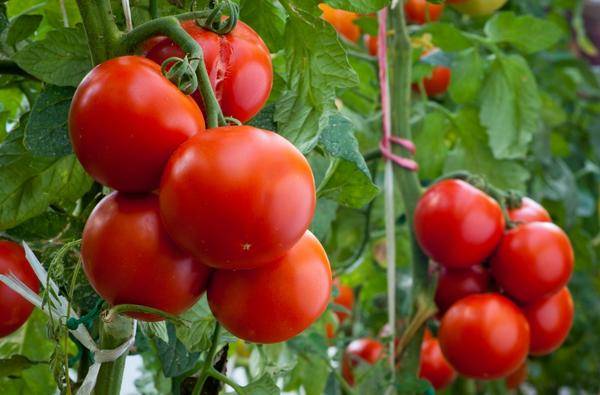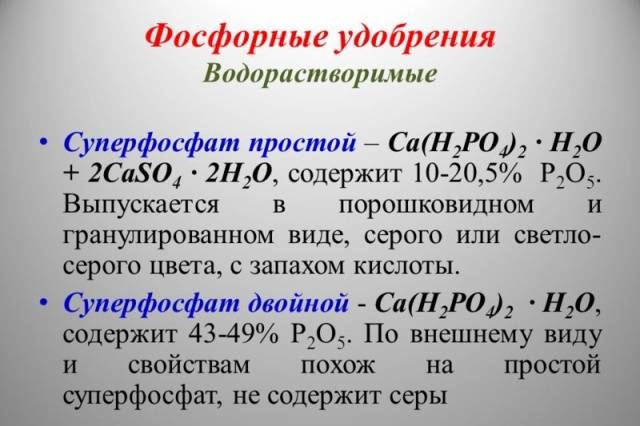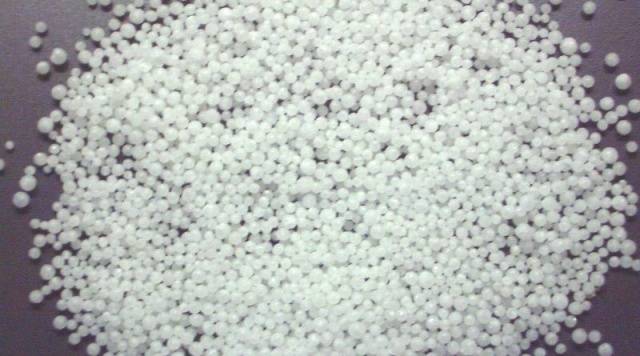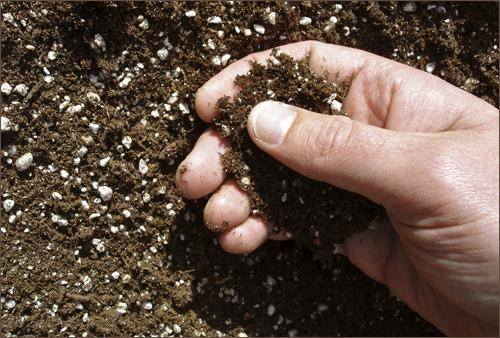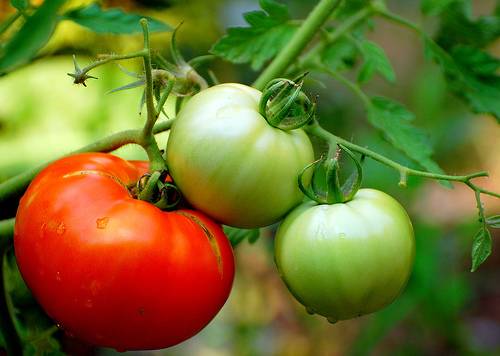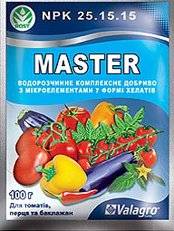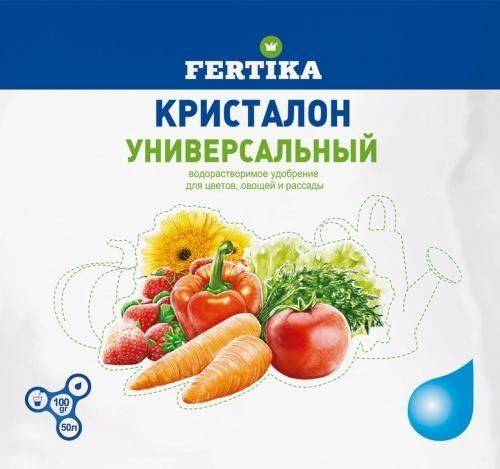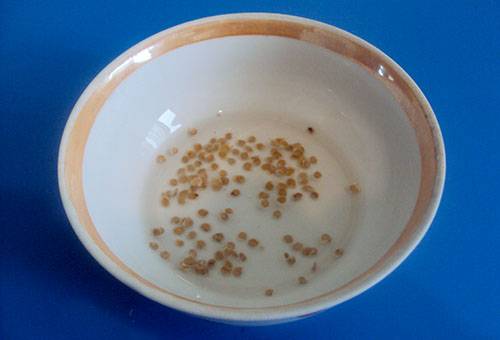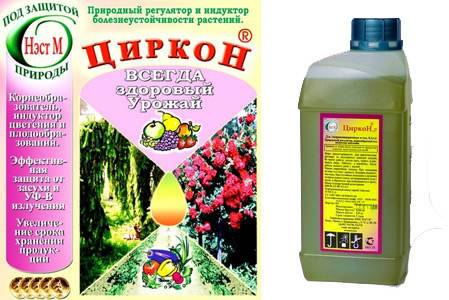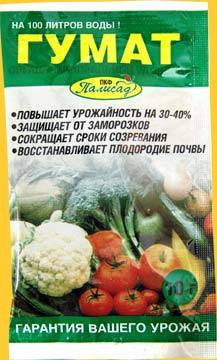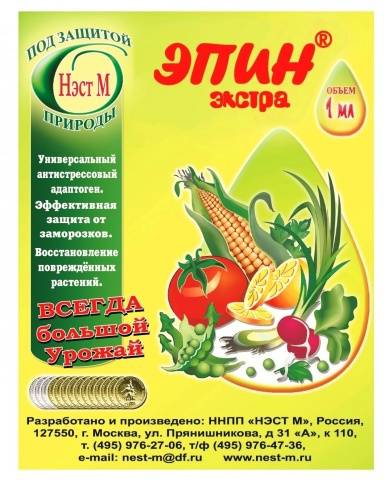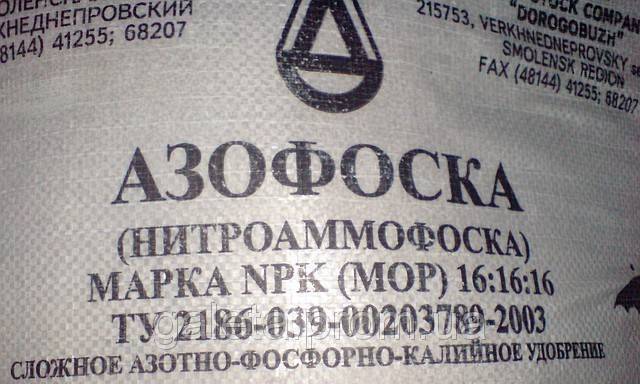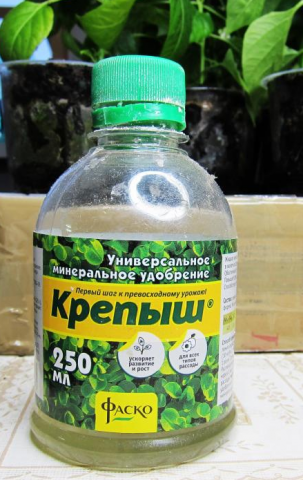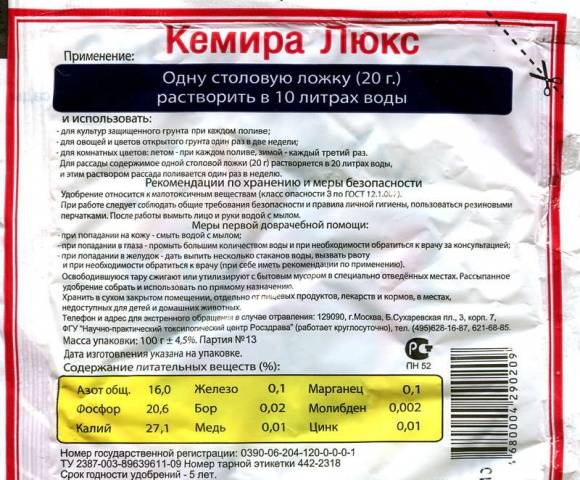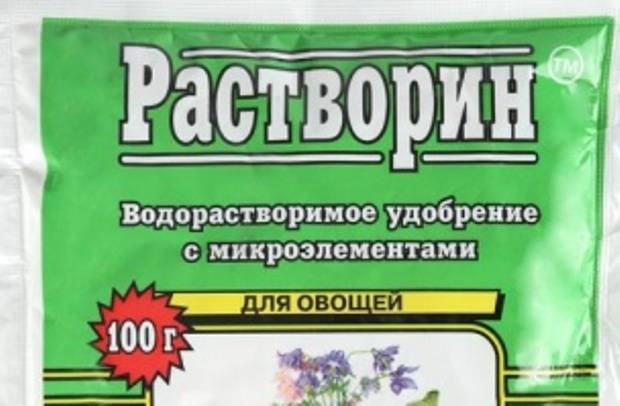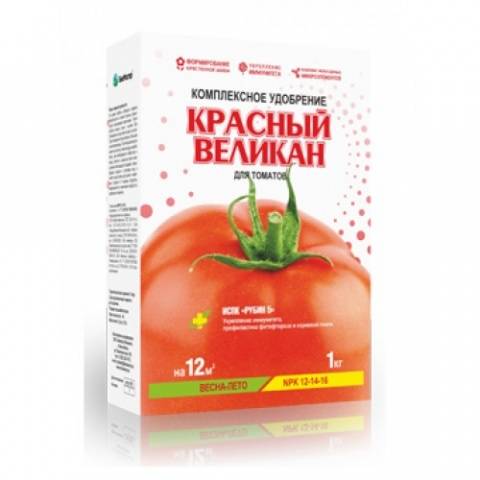It is almost impossible to grow a decent crop of tomatoes without the use of dressings and fertilizers. Plants constantly need nutrients and deplete the soil as they grow. As a result, the moment comes when tomatoes begin to "starve", showing a symptom of a lack of any trace element. Complex fertilizer for tomatoes will help prevent "starvation" and fill the deficiency of substances. You can see a lot of such fertilizers on store shelves. Most of them have a similar composition and can be applied at some stage of growing.
Minerals for tomatoes
Mineral fertilizers are one substance or several substances mixed in compliance with certain concentrations. They can be subdivided into Potash, phosphorus, nitrogen, complex.
Among all phosphate fertilizers, simple and double superphosphate... This fertilizer for tomatoes is gray (white) powder or granules. Their peculiarity lies in the fact that they are poorly soluble in water and before using them, it is recommended to infuse them in water throughout the day to obtain an extract. Phosphorus fertilizers are used to create mineral mixtures as one of the ingredients or as an independent feeding when observing symptoms characteristic of a lack of phosphorus.
Nitrogen fertilizers for tomatoes are often used in the early stages of cultivation, when it is necessary to accelerate plant growth. These fertilizers include nitrate (ammonium, potassium, sodium), urea, and ammonium sulfate. In addition to the basic substance, these nitrogen fertilizers may contain some other minerals in small amounts.
Potassium a very important trace mineral that helps tomatoes develop the root system and supply nutrients from the root to the leaves and fruits. With enough potassium, the crop will taste good. Among potash fertilizers for tomatoes, it is recommended to use potassium magnesium or potassium sulfate... Potassium chloride should not be used as fertilizer, since tomatoes react negatively to chlorine.
In addition to the above fertilizers, you can find magnesium, calcium, sodium, boric and other preparations with one, basic mineral.
Thus, knowing simple mineral fertilizers, it is quite easy to independently prepare top dressing by combining various substances. Using only one type of mineral can compensate for the lack of the corresponding substance.
Feeding Schedule Using Simple Minerals
You can use mineral dressing many times throughout the cultivation of tomatoes. So, during the preparation of the soil, you can use urea. The substance is scattered over the surface of the soil before digging in an amount of 20 g / m2.
To feed tomato seedlings, you can also use a self-made mineral complex. To prepare it, you need to dissolve ammonium nitrate (20 g) in a bucket of clean water. The resulting liquid should be watered or sprayed with tomato seedlings.
Before planting in the ground, young plants need to be fed with potassium and phosphoruswhich will allow them to take root better.To do this, add potassium sulfate and superphosphate (15-25 g of each substance) to a bucket of water.
After planting in the ground, tomatoes can be fertilized with a nutrient mixture: 35-40 g for 10 liters of water superphosphate (double), 20 g of potassium sulfate and urea in the amount of 15g. Such a mineral complex saturates tomatoes with nitrogen, potassium, phosphorus and other minerals, as a result of which the plants develop harmoniously, abundantly form ovaries and fruit rich vegetables of good taste.
An alternative to such a complex can be a liquid fertilizer obtained by adding 80 g of simple superphosphate to a bucket of water, 5-10 g of ammonium nitrate and potassium sulfate in an amount of 30 g. The fertilizer can be used in greenhouses and on open ground many times, at intervals of several weeks. After feeding with such a complex, tomatoes will have high vitality and resistance to diseases, cold weather.
Foliar top dressing tomato can be carried out using boric acid. A solution of this substance will fertilize the plants and protect them from pests. Dissolve the spray acid at the rate of 10 g per 10 l.
By combining simple, one-component fertilizers, you can adjust the amount of minerals in the top dressing, depending on the fertility of the soil and the condition of the tomatoes. It should also be noted that the cost of such fertilizers will be lower than the cost of similar ready-made, complex mineral dressings.
Complex mineral fertilizers
For those farmers who do not want to combine mineral substances on their own, complex mineral fertilizers are offered. They contain all the necessary substances for the growth of tomatoes at a certain stage of the growing season. The advantage of complex fertilizers is efficiency and ease of use.
Improving soil composition
You can use nutritious dressings for tomatoes even at the stage of soil preparation. To do this, fertilizers are added to the substrate in which the seedlings will grow and to the hole, at the place of permanent cultivation:
Master NPK-17.6.18
This complex mineral fertilizer for tomatoes contains a significant amount nitrogen, potassium and phosphorus. Fertilizer is excellent for saturating the soil with nutrients. Complex feeding makes plants resistant to stress, accelerates their growth, and promotes normal, harmonious root development. Fertilizer "Master" is applied to the soil at the rate of 100-150 g per 1m2.
Kristallon
A whole range of water-soluble complex mineral fertilizers can be found under the name "Kristallon". In the soil for growing tomatoes, it is recommended to add "Kristallon special 18:18:18" in dry form. It contains potassium, phosphorus and nitrogen in equal proportions. In the future, fertilizers from the Kristallon series can also be used to feed tomatoes.
The listed types of complex fertilizers can replace manure and ammonium nitrate, urea when digging soil. They should be introduced into the soil in the spring before planting the plants. Also, top dressing has shown high efficiency when added to the soil for cultivation. tomato seedlings.
Growth activators for seeds
In prepared, fertile soil, at least prepared seeds should be planted. To do this, I pickle them, temper them, soak them in growth stimulants. For etching, as a rule, the planting material is soaked in a solution of potassium permanganate or aloe juice, hardening is carried out using the technology of variable temperatures.
You can accelerate seed germination, increase the percentage of germination and make the growth of tomatoes stronger with the help of growth stimulants. Of the most famous drugs, they are often used:
Zircon
This growth promoter is based on natural, plant-based hydroxycinnamic acids. Echinacea extracts are used for the production of fertilizers.The drug is sold in 1 ml ampoules, as well as in plastic bottles up to 20 liters.
To soak tomato seeds, you must prepare a solution by adding 1 drop of the substance to 300 ml of water. The duration of processing of the planting material with the obtained substance should be 2-4 hours. Soaking is recommended immediately before sowing the grains into the ground.
Humate
On sale you can find "Potassium-sodium humate". This substance is used to treat tomato seeds before sowing. The growth promoter can be in powder or liquid form. The "Humate" solution is prepared by adding 0.5 g of fertilizer per liter of water. Duration of seed soaking is 12-14 hours.
Epin
A biological product that stimulates the early germination of seeds and makes young tomatoes resistant to low temperatures, transplants, lack of sunlight, drought and excess moisture.
"Epin" is used to soak seeds. For this, a solution is prepared: 2 drops of the substance per 100 ml of water. Tomato grains are soaked for 6-8 hours. On the basis of observations, farmers claim that the treatment of tomato seeds with "Epin" increases the yield of vegetables by 10-15%. The product can also be used to spray the leaves of tomato seedlings.
Thus, all of the listed growth stimulants can increase the percentage of germination of tomato seeds, make plants viable and healthy, endow them with resistance to diseases, pests, weather adversity. Tomato seed treatment growth stimulants can significantly increase the yield of vegetables.
More information on using growth promoters can be found in the video:
Fertilizers for seedlings
Tomato seedlings are extremely demanding on the composition of the soil and the presence of various minerals in it. It is necessary to feed young plants several times from the moment the first leaves appear to planting in the ground. Tomatoes at this time are fertilized with mineral complexes with nitrogen, potassium and phosphorus:
Nitroammofoska
This fertilizer is the most common and available. It is used to feed various vegetable crops at various stages of cultivation.
"Nitroammofoska" is produced in several brands, which differ in the concentration of basic minerals: grade A contains potassium, nitrogen and phosphorus in equal proportions (16%), grade B contains more nitrogen (22%) and equal amounts of potassium and phosphorus (11%) ...
Tomato seedlings should be fed with "Nitroammophos grade A". For this, a matchbox of fertilizer is added to a bucket of water and mixed. After dissolving, the mixture is used for watering seedlings at the root.
Sturdy
"Krepysh" is a complex mineral fertilizer specially developed for feeding seedlings. It contains 17% nitrogen, 22% potassium and 8% phosphorus. It contains absolutely no chlorine. You can use top dressing during the preparation of the nutrient substrate by adding granules to the soil. It is also effective to use fertilizer for watering tomato seedlings at the root. You can prepare a top dressing by adding 2 small spoons of the substance to a bucket of water. When using fertilizer "Krepysh" in liquid form, add 100 ml of top dressing to a bucket of water.
Top dressing accelerates growth tomato seedlings, makes it more resilient, resistant to various stresses and weather troubles. You can water the tomatoes with fertilizer when the first leaf appears.You should use tomato feed regularly once a week. After planting in the soil, tomatoes can also be fed with such a mineral complex once every 2 weeks.
In addition to the above fertilizers, for tomato seedlings, you can use the preparations "Kemira Kombi", "Agricolla" and some others. These complex fertilizers for tomatoes are the most affordable and effective. Their use will allow plants to obtain the necessary amount of nitrogen for accelerated harmonious growth of green mass, as well as potassium and phosphorus, which will allow young plants to build up a developed root system.
Minerals for regular feeding
After planting seedlings, a particularly important period begins when tomatoes need a lot of micronutrients for abundant flowering and fruit formation. Potassium and phosphorus are especially important for them, while nitrogen should be added in small quantities. So, after planting tomato seedlings in the ground, you can use the following, the best complex fertilizers:
Kemira Lux
This name hides one of the best fertilizers for tomatoes. It contains over 20% phosphorus, 27% potassium and 16% nitrogen. It also contains iron, boron, copper, zinc and other minerals.
Use "Kemiru Lux" for watering tomatoes after dissolving 20 g (one tablespoon) of the substance in a bucket of water. It is recommended to water the tomatoes once a week with top dressing.
Solution
The mineral complex is represented by two brands: A and B. More often, "Solution A" is used for feeding tomatoes. It contains 10% nitrogen, 5% readily soluble phosphorus and 20% potassium, as well as a complex of some additional minerals.
You can use "Solution" for feeding tomatoes under the root and spraying. For top dressing at the root, 10-25 g of the substance is dissolved in a bucket of water. For spraying, the fertilizer rate is 25 g per 10 liters. You can fertilize tomatoes with "Solution" regularly, once a week.
"BioMaster Red Giant"
Mineral complex fertilizer can be used for feeding tomatoes from the moment of planting in the ground until the end of fruiting. It contains 12% nitrogen, 14% phosphorus and 16% potassium, as well as small amounts of other minerals.
Regular use of "Red Giant" fertilizer significantly increases productivity, makes tomatoes more adaptable to bad weather conditions, high humidity, and drought. Plants under the influence of a balanced mineral complex develop harmoniously and grow rapidly.
Conclusion
Minerals allow tomatoes to grow roots and green matter evenly. Potassium and phosphorus are not contained in organic matter in the amount that is necessary, therefore, growing tomatoes is almost impossible to do without mineral fertilizers. For tomatoes in the greenhouse and in open areas of the ground, you can pick up one-component substances that need to be mixed with each other or added to organic infusions. Mineral complexes are fully capable of satisfying the needs of tomatoes. What fertilizers to choose, only the gardener himself decides, but we have given a list of the most popular, affordable and effective mineral dressings.
